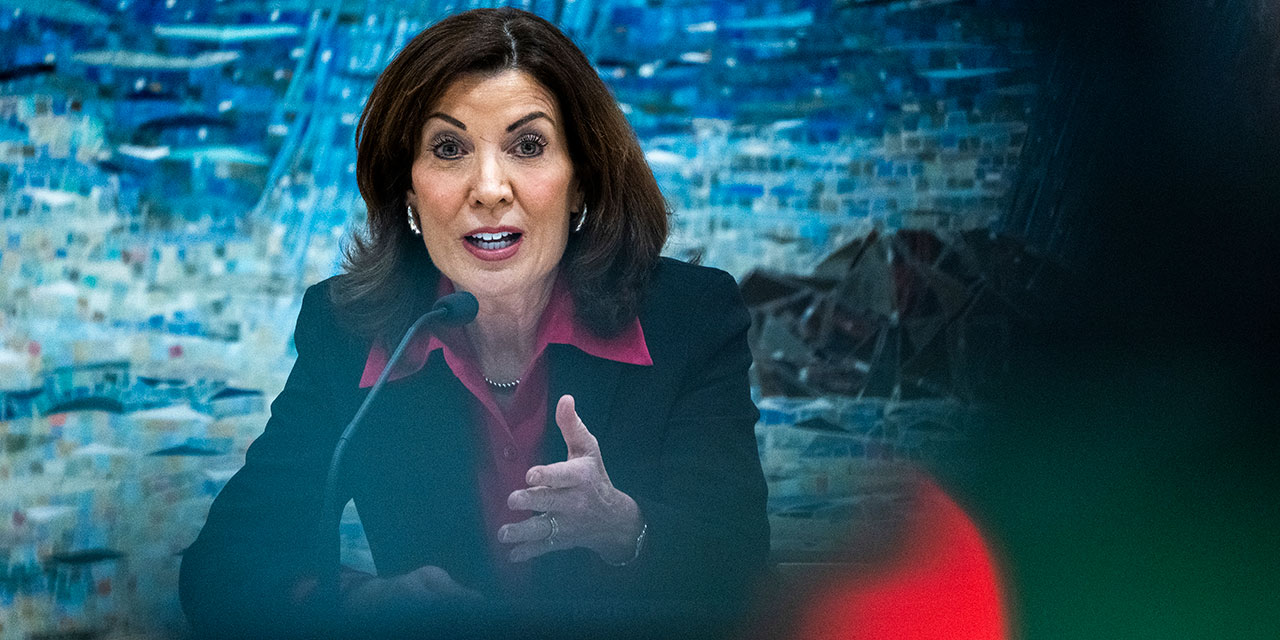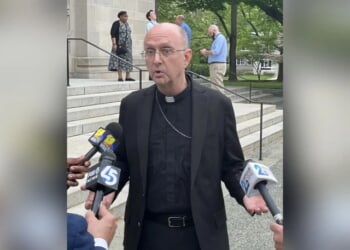
New York is more than a week into its new fiscal year, and Governor Kathy Hochul and the state legislature have yet to agree on a budget. Instead, they are stuck in closed-door negotiations over changes to the state’s discovery-reform law, which has stifled prosecutors even as Albany progressives resist fixing it.
Why is discovery reform holding up the budget? Because in the Empire State, the budget process is not just about appropriations. Increasingly, it has become legislators and governors’ primary mechanism for making policy changes.
Finally, a reason to check your email.
Sign up for our free newsletter today.
Unlike the traditional legislative process, budget negotiations occur largely behind closed doors—often leading to bad legislation. That’s how New York’s original discovery reform law was passed, as part of the 2019 budget deal signed by then-Governor Andrew Cuomo. The law has put enormous burdens on the state’s 62 district attorneys’ offices. It requires DAs to collect 21 specified categories of material and any other “related” records—even if they’re irrelevant—before prosecuting a case. If prosecutors fail to do this within the designated time window, the case is essentially automatically dismissed.
As a result, New York has seen an astronomical surge in dismissals. Around 40,000 more cases statewide were let go last year than in 2019 because prosecutors failed to assemble the requisite material for defendants before the time period expired.
New Yorkers were left in the dark about the details of a law crafted behind closed doors, without public debate. Had it gone through the normal legislative process, they might have learned just how extreme it was. For example, liberal states like California, Michigan, Nevada, Rhode Island, and Oregon require prosecutors to collect between three and 11 categories of evidence, not 21. They also would have learned that the reforms would make New York the only state where prosecutors must collect even irrelevant material—and the only one where failing to do so results in case dismissals.
If they weren’t consulted on the law’s terms, however, New Yorkers have had ample opportunity to observe its consequences. As a recent Manhattan Institute poll found, they are increasingly concerned: crime and public safety is voters’ top issue in the 2025 mayoral election.
In response to public pressure, Governor Hochul included modest changes to the discovery law in her executive budget proposal in January. The adjustments would lighten the demand on prosecutors for irrelevant material and limit case dismissals based on trivial errors. Even if the changes were adopted, New York would still have the country’s most pro-defendant regime. That didn’t stop progressive groups like the Legal Aid Society from insisting that Hochul’s proposal would open the floodgates “for prosecutors and police to withhold and hide evidence,” which prompted credulous lawmakers to reject the changes in March when the Senate and Assembly passed resolutions laying out their own priorities.
Hochul now says that she will prolong the budget process for “as long as it takes” to get her amendments passed. She can keep legislators in Albany indefinitely with short-term “extenders,” jeopardizing their travel plans for the session’s two-week break scheduled later this month.
A stronger governor might not have needed to rely on the budget process to enact such important legislation. Then again, better lawmakers would have acted independently to address discovery reform’s clearly catastrophic effects. Instead, the legislature has left the problem for the governor to fix. Here’s hoping she does.
Photo by Eduardo MunozAlvarez/VIEWpress/Corbis News via Getty Images
City Journal is a publication of the Manhattan Institute for Policy Research (MI), a leading free-market think tank. Are you interested in supporting the magazine? As a 501(c)(3) nonprofit, donations in support of MI and City Journal are fully tax-deductible as provided by law (EIN #13-2912529).
Source link
















